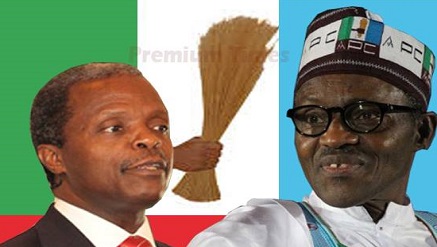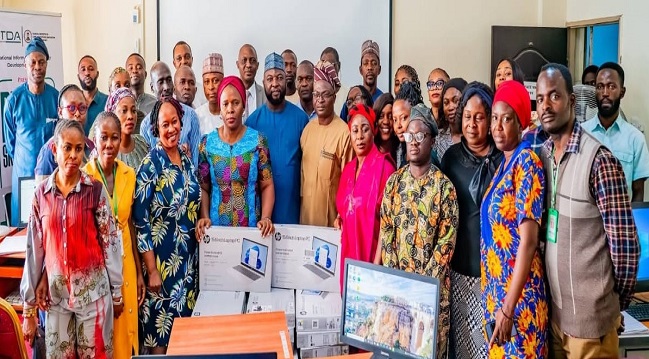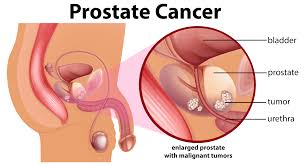News
Buhari’s Men Join Chorus, Criticise PMB for Economic Hardship

Fund managers first expressed their concerns over President Muhammadu Buhari’s handling of Nigeria’s economic crisis by taking billions of dollars of funds from its markets.
Then, multinationals and local industry captains began voicing unease with his government’s policies.
Now Buhari’s senior officials and allies are joining the chorus of criticism, complaining of “paralysis” and a lack of urgency under his leadership in tackling the economic malaise.
Even his wife, Aisha, has spoken up, saying that if things carry on as they are, she will not campaign for his re-election in 2019.
“The whimper is becoming a din — externally and [within government],” said one government minister.
“Naturally we should be quiet, because it’s our government and we want our president to succeed. But a sense of lack of urgency is getting in the way.”
The growing murmurs of discontent highlight the depth of the crisis in Nigeria, which is enduring its first recession since 1991, amid complaints that Buhari is exacerbating the situation rather than leading a revival.
n a speech this month, Mr Buhari acknowledged “how difficult things are” for Nigerians. He insisted he remained “resolutely committed” to good government, and to stopping “the stealing of Nigeria’s resources”.
But the first lady told the BBC that her husband “does not know 45 out of 50 of the people he appointed”.
“I don’t know them either, despite being his wife of 27 years,” Mrs Buhari said. “If things continue like this up to 2019, I will not go out and campaign again.”
The president sought to laugh off his wife’s comments.
“I don’t know which party my wife belongs to, but she belongs to my kitchen and my living room and the other room,” Mr Buhari said.
The fall in oil prices triggered the economic crisis in a nation that depends on petrodollars for 70 per cent of state revenues and 90 per cent of export earnings, and the slump in commodity prices has hit economies across Africa.
But in Nigeria, there are complaints that Mr Buhari has undermined his economic management team and created policy inconsistencies and sent conflicting signals to markets and the public.
As a result, the few major decisions that have been taken, such as the removal of fuel subsidies and relaxing the currency’s peg, have come months too late, officials say.
The former military ruler’s election last year spawned huge expectations in Africa’s top oil producer.
It was the first time an opposition candidate had unseated an incumbent at the ballot box and Mr Buhari, 73, pledged to crack down on rampant corruption and overhaul an inefficient state system.
But a senior presidential aide said optimism had given way to “paralysis”. “Where is the energy? Everyone is waiting for bold decisions,” said the aide.
Capital inflows dropped by 75 per cent in the second quarter, reflecting the negative sentiment of investors who say they cannot bring hard currency to the country because the foreign exchange market is not transparent.
When the central bank did ease the currency’s peg to the dollar in June, causing the naira to fall by 30 per cent, Mr Buhari said he was not convinced a devaluation would help the economy.
This was viewed by investors and bankers as a sign of interference in monetary policy, and added to perceptions that members of the president’s inner circle are giving instructions to the central bank governor Godwin Emefiele to prop up the naira at all costs.
“The governor is independent, so we are told,” said the minister. “The extent to which he is — and where he is taking his instructions from — remains to be seen.”
He said investor confidence would not be restored unless Mr Emefiele was replaced. “We need a shock therapy. The market needs to see some heads roll,” the minister said.
Other top officials, including Kemi Adeosun, finance minister, have complained that the central bank’s refusal to bring down the main interest rate from 14 per cent is choking the economy.
Audu Ogbeh, agriculture minister, said that high borrowing rates had made it impossible for farmers and agribusinesses to scale up production of rice, sugar, milk and other goods imported in huge quantities.
“We’re in trouble because we can’t produce and we can’t import,” he said. “The timing of policy and implementation has to be better organised.”
The presidential aide did cite military gains made against Boko Haram, the Islamist militant group, as a positive.
But he acknowledged that Buhari’s promise of “quick win” reforms, such as an overhaul of the notoriously corrupt state-owned oil company, have yet to happen.
“The key question is whether the president realises this and does the right thing by empowering the economic management team,” said the aide. If not, he said, “we will limp along from crisis to crisis”.
News
NITDA Equips Federal Character Commission with Data Tools to Drive Public Sector Reform

In a strategic move to modernise Nigeria’s public service, the National Information Technology Development Agency (NITDA) has concluded a specialised digital capacity-building programme for the Federal Character Commission (FCC).

The initiative, which included the donation of 35 laptops, aims to transition the Commission from manual processes to a data-driven oversight model, ensuring more transparent and equitable representation across all government MDAs.
In alignment with President Bola Ahmed Tinubu’s key priority area of reforming the economy for sustained and inclusive growth, as well as improving governance for effective service delivery, it forms part of NITDA’s Digital Literacy for All (DL4All) programme aimed at strengthening digital capacity across public sector institutions and building a workforce equipped to drive Nigeria’s digital transformation agenda.
The training, held at the Commission’s headquarters, focused on enhancing participants’ competencies in critical areas such as data analysis and data management, skills considered essential to improving institutional performance and service delivery.
Representing the Director General of NITDA, Kashifu Inuwa CCIE, the Acting Director of Digital Literacy and Capacity Building, Dr Ahmed Yusuf Tambour, explained the purpose of the intervention.
“We are here at the Federal Character Commission to carry out a training for staff of the Commission in the area of digital literacy to enhance their proficiency,” he stated.
He noted that the training was deliberately tailored to align with the Commission’s statutory responsibilities.
“We are particularly focusing on data analysis and data management, because this really aligns with the core mandate of the Commission,” he said.
The Federal Character Commission, which is responsible for monitoring and ensuring equitable representation in public service across Ministries, Departments and Agencies (MDAs), relies heavily on accurate and well-managed data to carry out its oversight functions.
By strengthening staff capacity in data handling and digital tools, NITDA aims to enhance the Commission’s ability to manage nationwide datasets efficiently and transparently.
Describing the programme as impactful and well-received by participants, Inuwa said, “So it’s been a great journey. We’ve trained 35 participants here, and the training has been very well received.”
As part of the intervention, NITDA donated 35 laptops to the Commission to facilitate continuous learning and enable staff to seamlessly integrate digital tools into their daily operations.
The gesture is expected to reinforce the sustainability of the training outcomes and improve workflow efficiency within the Commission.
Expressing optimism about the long-term benefits of the initiative, Inuwa added, “We are hoping that this will help the Commission to manage the very, very important data that they collect across all MDAs.”
The intervention reflects NITDA’s sustained commitment to deepening digital inclusion within government institutions under the Renewed Hope Agenda. By equipping public servants with practical digital skills and the necessary tools, the Agency is advancing institutional efficiency, strengthening data-driven decision-making, and supporting the Federal Government’s vision of a modern public service capable of driving inclusive national development and economic reform.
News
Nigeria, EU Ink Research, Innovation Deal Worth €100Bn

Nigeria and the European Union have inked a scientific and technology deal that grants access to about €100 billion in research and innovation funding for scientists, start-ups, and public institutions.

The agreement is a significant boost to the country’s tech environment, providing new prospects for research, innovation, and start-up growth.
The arrangement was signed in Abuja by Gautier Mignot, head of the EU delegation to Nigeria and ECOWAS, and Kingsley Udeh, Nigeria’s minister of innovation, research, and technology.
After more than two decades without a formal framework, the agreement transfers cooperation from informal to structured, large-scale collaboration.
The European Commission’s Horizon Europe programme, the world’s largest public research budget, is at the heart of the deal, which will bring together Nigerian researchers and firms to work on cross-border projects in health, agriculture, climate, food systems, and new technologies.
Udeh stated that the relationship puts Nigeria as a continental powerhouse for science and enterprise, with an emphasis on translating research into commercially viable products and assisting startups in scaling into global players.
Gautier Mignot noted that Nigerian organisations are already active in several Horizon-backed and global health research projects, but the new pact provides a legal and political framework to significantly expand participation, funding access and visibility.
To ensure delivery, both parties created a Joint Science and Technical Cooperation Committee to drive implementation and track measurable outcomes.
Beyond academia, the agreement aims to support innovators, boost university–industry collaboration, and help more Nigerian tech firms compete globally, strengthening Nigeria’s position as a leading startup hub in Africa.
News
Microplastics Found in 90 Percent of Prostate Cancer Samples

Microplastics have now been found inside most prostate cancer tumors — and at strikingly higher levels than in healthy tissue.

A new study reports that tiny plastic particles were present in nine out of 10 men diagnosed with prostate cancer.
Researchers also found that these fragments appeared in greater amounts inside cancerous tumors than in nearby noncancerous prostate tissue.
The investigation was conducted at NYU Langone Health, including its Perlmutter Cancer Center and Center for the Investigation of Environmental Hazards.
Scientists set out to examine whether exposure to microplastics could play a role in the development of prostate cancer, which the American Cancer Society identifies as the most common cancer affecting American men.
Plastic used in food containers, packaging, cosmetics, and other everyday products can break down into microscopic pieces when heated, worn down, or chemically altered.
These particles can be swallowed, inhaled from the air, or absorbed through the skin. Previous research has detected microplastics throughout the human body, including in major organs, bodily fluids, and even the placenta.
Despite their widespread presence, scientists still do not fully understand their health effects.
For this study, researchers analyzed prostate tissue samples from 10 patients undergoing surgery to remove the prostate gland. Microplastic particles were identified in 90% of tumor samples and in 70% of noncancerous samples.
Notably, tumor tissue contained significantly more plastic.
On average, cancerous samples had about 2.5 times the concentration found in healthy prostate tissue (about 40 micrograms of plastic per gram of tissue compared with 16 micrograms per gram).
“Our pilot study provides important evidence that microplastic exposure may be a risk factor for prostate cancer,” said study lead author Stacy Loeb, MD, a professor in the NYU Grossman School of Medicine’s Departments of Urology and Population Health.
Loeb explained that while earlier studies had hinted at links between microplastics and conditions such as heart disease and dementia, there had been little direct research connecting them to prostate cancer.
The findings will be presented on February 26 at the American Society of Clinical Oncology’s Genitourinary Cancers Symposium.
According to Loeb, this is the first study conducted in the West to measure microplastic levels in prostate tumors and directly compare them with levels in noncancerous prostate tissue.
To carry out the analysis, scientists first examined the tissue visually. They then used specialized instruments to measure the quantity, chemical makeup, and structural characteristics of microplastic particles. The team focused on 12 of the most commonly produced plastic molecules.
Because plastic is widely used in medical and laboratory tools, the researchers took extra precautions to prevent contamination. They replaced plastic equipment with alternatives made from aluminum, cotton, and other nonplastic materials. All testing took place in controlled, clean rooms specifically designed for microplastic analysis.
“By uncovering yet another potential health concern posed by plastic, our findings highlight the need for stricter regulatory measures to limit the public’s exposure to these substances, which are everywhere in the environment,” said study senior author Vittorio Albergamo, PhD.
Albergamo, an assistant professor in the NYU Grossman School of Medicine’s Department of Pediatrics, said the next step is to determine how microplastics behave inside the body and whether they contribute directly to cancer development. One theory the team plans to investigate is whether these particles trigger a persistent immune response (inflammation) in prostate tissue.
Over time, chronic inflammation can damage cells and lead to genetic changes that allow cancer to form.
Albergamo emphasized that the study involved a small number of patients and that larger studies will be necessary to confirm the results.
According to the Centers for Disease Control and Prevention, about one in eight men in the U.S. will be diagnosed with prostate cancer during their lifetime.
Meeting: American Society of Clinical Oncology’s Genitourinary Cancers Symposium
The research was funded by the U.S. Department of Defense.
In addition to Loeb and Albergamo, the NYU Langone research team included Leonardo Trasande, MD, MPP; Trevor Johnson, PhD; Fang-Ming Deng, MD, PhD; Mark Strong, DO; David Wise, MD, PhD; José Alemán, MD, PhD; Zixuan Mo, BS; Mariana Rangel Camacho, BS; Nataliya Byrne, BA; Tatiana Sanchez Nolasco, MPH; Adrian Rivera, MPH; William Huang, MD; Herbert Lepor, MD; Wei Phin Tan, MD; and James Wysock, MD.
Samir Taneja, MD, of Northwell Health in New York City also contributed to the study.
Loeb has consulted for pharmaceutical company Astellas, digital health company Savor Health, and men’s health organization Movember, and has received research support from Endo USA Inc. She also participated in advisory boards for Endo USA, Blue Earth Diagnostics, Pfizer, Sumitomo Pharma, and Doceree. Wysock has consulted for medical equipment manufacturers Edap — Focal One, and URO-1 Medical. Wise is a paid consultant for Pfizer, Bayer, K36, OncoC4, AstraZeneca, and Janssen Pharmaceuticals, and is an expert witness for Exxon Mobil. None of these activities are related to the current study. NYU Langone Health is managing the terms and conditions of these relationships in accordance with its policies and procedures.
Credit…..scitechdaily.com

 E-Business2 days ago
E-Business2 days agoAfDB, UNDP Launch $10Bn AI Initiative for Africa

 Telecom2 days ago
Telecom2 days agoGrey Expands Cross-Border Banking with USD Accounts, USDC Support

 News3 days ago
News3 days agoObasanjo, Vanguard’s Amuka Lead Prayers for Zinox Chief Leo Stan Ekeh @70

 News2 days ago
News2 days agoLotus Bank, REA Seal N100Bn Deal to Power Rural Nigeria

 News2 days ago
News2 days agoDG NITDA Reaffirms FG Commitment to Responsible, Inclusive AI

 General News1 day ago
General News1 day agoKPMG Strengthens Africa Leadership to Support Long‑term Growth Across the Continent

 E-Financial2 days ago
E-Financial2 days agoCBN Cuts MPR by 50bps to 26.50% as Inflation Eases for 11th Month

 General News2 days ago
General News2 days agoKaspersky Enhances Network Detection and Response Capabilities with KATA 8.0 Release














